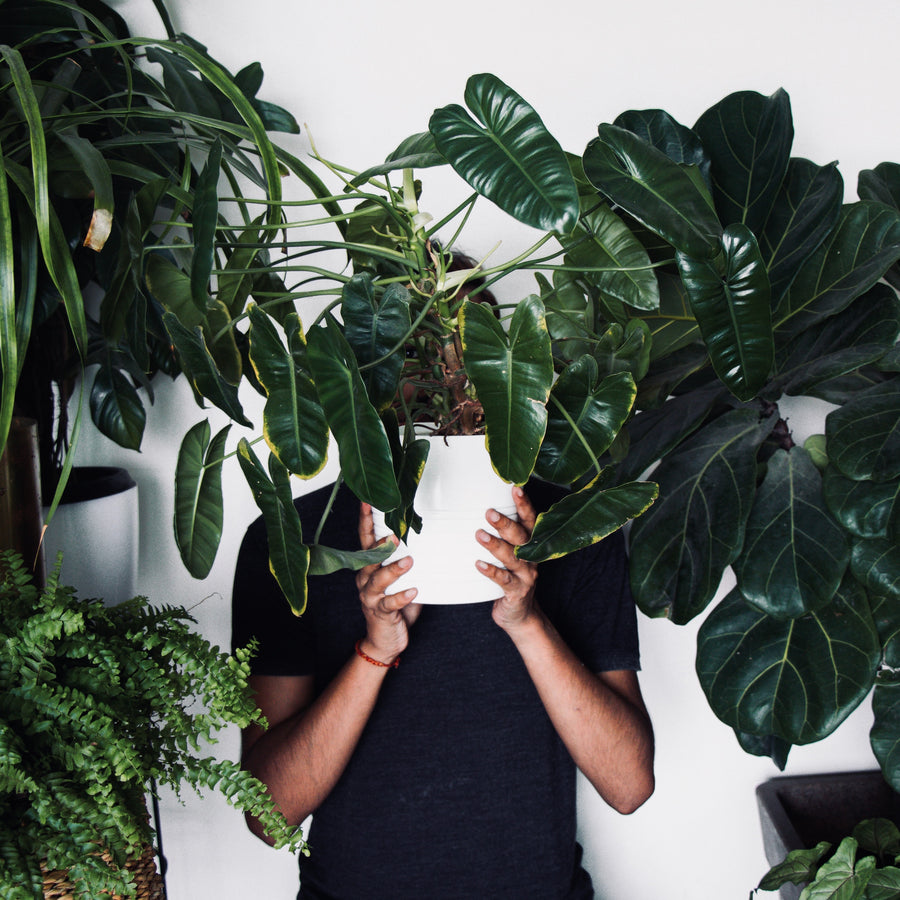Your cart is empty.
Let's change that. Start Shopping
Let's change that. Start Shopping
Oct 5, 2020

Inspired to bring a little #jungalowstyle home with a side of health benefits? Here are four of the best ways to bring that living, breathing plant goodness to your bedroom, bathroom, kitchen, or office—especially if you think indoor plants aren't for you, because these four superstars are low maintenance, too!
Researched by TED-renowned Kamal Meattle, this bright green and yellow plant doesn't grow dollar bills, but it is commonly used by feng shui practitioners to draw in prosperity. And if you believe health is wealth, the Money Plant could truly contribute to your physical prosperity, since it's pretty good at removing the VOCs (volatile organic compounds) from off-gassing carpets, new couches, or fresh paint.
Striking and easy to care for, snake plants are technically a succulent, which means they can thrive in almost any indoor environment—perfect for anyone living in a less-than-bright abode. Snake plants give off oxygen at night while potentially filtering formaldehyde, xylene, trichloroethylene, toluene, and benzene from the air, and give a cool, vertical focal point to any room. Choose plants with dark green leaves and don’t overwater them—they’ll be happy if you kind of forget they exist and water them once in a while when you remember.
One of the NASA-approved indoor plants, the red-edged dracaena is affordable and happy in shade or sun. Left to their own devices, the relative of the yucca can grow up to 15 feet—but you can prune them down to keep them from taking over your home.
Peace Lilies aren’t actually proper lilies—they’re a member of the Araceae family, along with Golden Pothos—but they are easy-growing, tropical plants that send up white flower-like leaves called spathes in the spring (and sometimes fall). They like light partial shade, as direct sunlight will discolor the leaves, and can even live in rooms without any windows! They may even remove mold spores from the air, so pop one in your bathroom or laundry room.
One warning we want to pass along to the pet lovers out there: Many common houseplants are toxic to cats, dogs, and other pets, so be sure to chat with the staff at any nursery you visit to prevent any visits to the emergency vet.